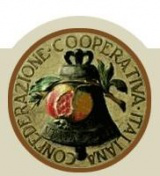Pope Francis encourages mission of Italy's co-op movement

Pope Francis held an audience with about 7,000 members of the Confederazione Cooperative Italiane (confederation of Italian co-operatives) today, Saturday. During the meeting he gave them five practical suggestions for their mission in the context of the current “throwaway culture.”
First, the Holy Father said, co-operatives must continue to be “the motor that uplifts and develops the weakest parts of our local communities and civil society.” Their first priority is to establish new co-operatives, while developing existing ones, so as to create new employment opportunities, especially among youth, he said.
Secondly, the Pope urged the co-op movement to be a “protagonist” in proposing new welfare solutions, particularly in the area of healthcare.
As a third point, he spoke of the economy and its relationship with social justice and human dignity. Speaking of the need to “globalize solidarity,” he urged the confederation to bring co-operatives to the “existential peripheries” and to continue to be “prophetic” by “inventing new forms of co-operation.”
The Pope spoke of “a certain liberalism,” which “believes it is first necessary to produce wealth—and it does not matter how—to then promote some state redistribution policy.”
Others think it is up to a company to “bestow the crumbs of accumulated wealth” to those in need to then, in turn, “absolve themselves” of “their so-called ‘social responsibility’,” the Pope said.
“You run the risk of deluding yourself that you are doing good while, unfortunately, you continue only to do marketing,” without ever escaping the “fatal loop” of egoism, “which has the god of money at the centre,” he said.
Instead, the co-operative creates a “new type of economy” that allows “people to grow in all their potential,” socially and professionally, as well as in responsibility, hope and co-operation, he said. The Pope clarified that while he was not saying income growth is not important, it certainly “is not enough.”
Fourth, he said, the co-operative movement can exercise an important role in sustaining, facilitating and encouraging family life, by insisting on work-life balance, which would “help women to realize fully their own vocation and to put into practice their own talents.” In this way, he said, women are “free to be always greater protagonists, whether at work or in families.”
Fifth, where few resources exist to start up new projects, the Pope urged the co-op movement to “invest well,” in particular by putting together “good resources to realize good works.” He urged more collaboration among credit unions and co-op businesses and the establishment of resources “for families to live with dignity and serenity.”
He also warned against money becoming an idol, citing St Francis of Assisi in calling it “the devil’s dung.”
“When money becomes an idol, it controls man’s choices,” he said. “It makes him a slave.”
He encouraged the co-operative movement to join the global economy to promote both "an economy of honesty" and "a healing economy." He urged them to exercise “the courage and the imagination to build a just path, so as to integrate development, justice and peace in the world.”
He concluded by calling on the members of the Catholic confederation to maintain their Catholic identity and values in their current collaboration with other co-op groups in creating a large national association.
“Live your alliance (with these other groups) as Christians, as a response to your faith and identity, without fear. Faith and identity at the base,” he said.
“And this is also a Christian call to all,” he continued, speaking off-the-cuff. “Christian values not only for ourselves. They are to be shared. Share them with those, who do not think as we do but who want the same thing that we want.”
Italy's church-based co-op movement began in the late 19th century, inspired by the encyclical Rerum Novarum, written by Pope Leo XIII. The Confederazione Cooperative Italiane was first founded in 1919. It was suppressed by the Fascist Regime and re-established in 1945.
Source: VIS/Vatican Radio















